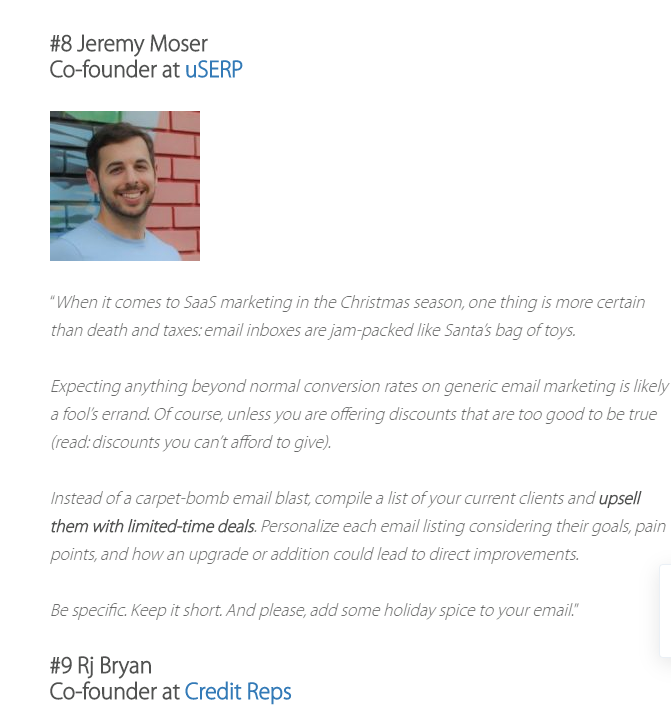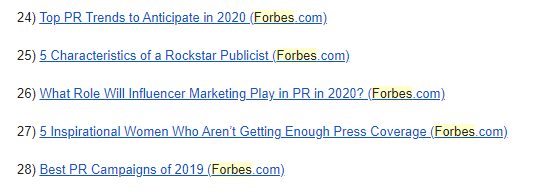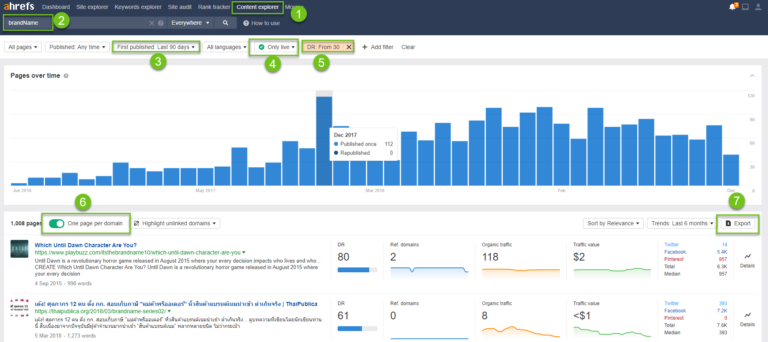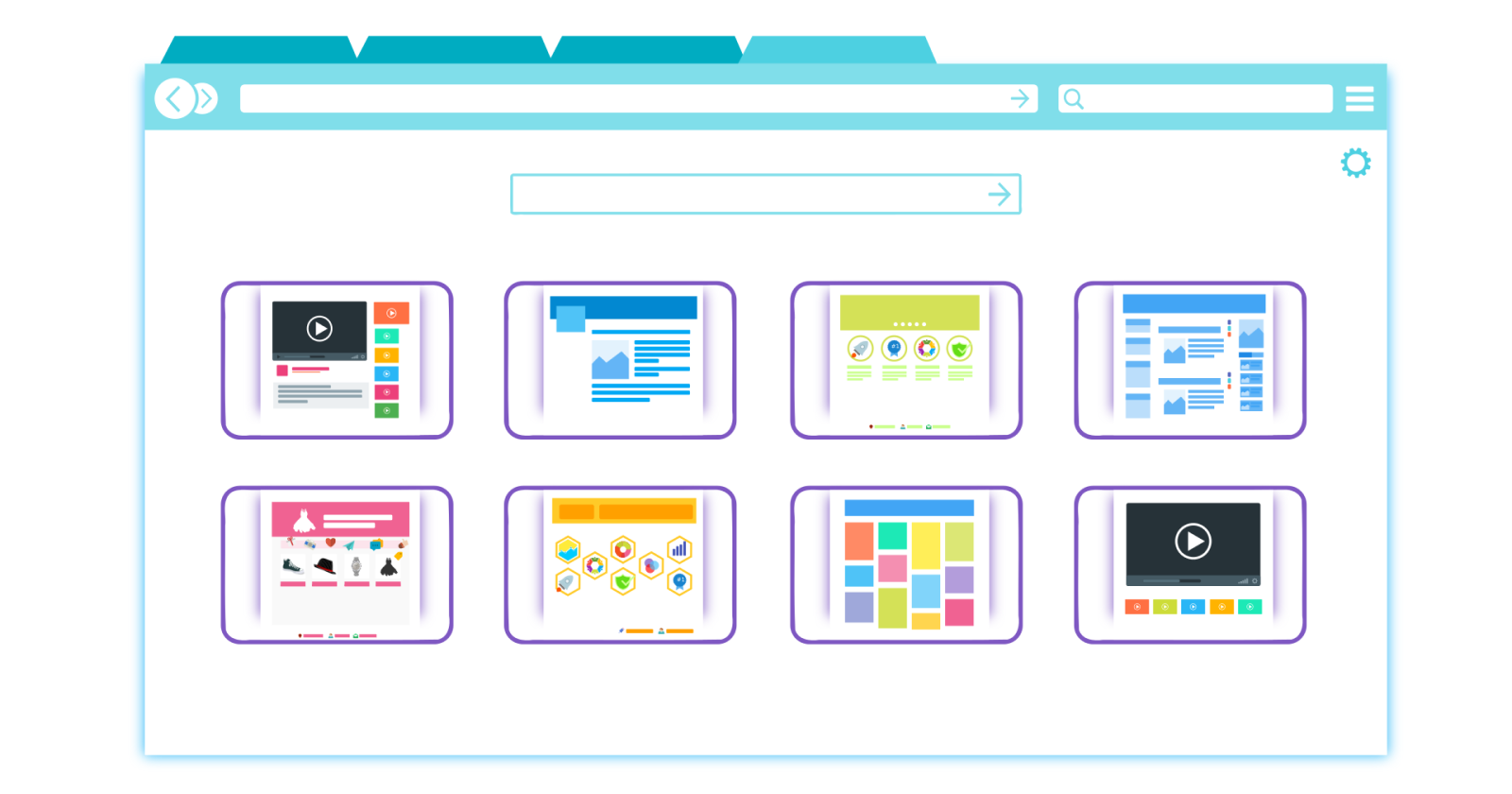Unless you are HubSpot or Ahrefs (or Search Engine Journal 😉) and naturally land millions of links, you should be looking to acquire links.
Google has made it clear that content and links are two of the biggest SEO factors.
Content without links limits your referral traffic and hinders ranking potential.
The only problem is: Google has also put strict guidelines into place about link building.
So, how do you acquire critical links from top-tier websites without breaking Google’s “rules” and requirements?
How do you build links in an ethical manner that positively impacts your website and brand image?
Here are three ethical link building strategies for SEO and marketing professionals to try out.
1. Be a Journalistic Source of Information
One of the most ethical sources of backlinks online is being a journalistic source of information.
What does that mean?
Essentially: Providing a quote or tip or piece of information in exchange for a mention of your name, your brand, and your website.
For example, this is something I just recently did on a blog post about SaaS holiday marketing:

Expert interviews, roundups, or quotes are fantastic content marketing tools that can help improve content impact.
It’s always interesting to gather multiple opinions from different sources on a single subject to understand concepts and utilize experience from more than one source.
It makes for fantastic user experiences when reading and looking to implement new ideas.
Because of this, reporters, journalists, and writers are always looking for people to contribute to their content.
And when you are trying to build ethical, by-the-book backlinks, this should be music to your ears.
So, how do you do this efficiently and scale your ethical link building?
How on earth do you contact content marketers and bloggers to get featured without being annoying or spammy?
My favorite tool is HARO, otherwise known as Help a Reporter Out. It’s used by more than 55,000 bloggers and journalists alike.
HARO is a website where writers can post their topic and what type of quote or tip they are looking for.
All you have to do is respond via email with your submission and wait for them to confirm.
The best part is: the sources you contribute to aren’t unknown, random, or sketchy websites.
In fact, I’ve contributed to publications from HubSpot to Forbes using it:

With HARO, you can create a free account that will deliver media opportunities directly to your inbox on a daily basis.
Depending on what niches you want to focus on, you will get potentially hundreds of media opportunities each week to respond to.
With a long, curated list, you can pick the topics and publications that appeal most to you and your brand goals.
Best of all?
It’s free.
Sure, it takes time to write a valuable quote or tip, but getting exposure on websites like Forbes makes it worthwhile.
So, what are you waiting for? Go become a journalistic source of information and acquire powerful links, ethically.
2. Link Reclamation: Improve Value in Existing Content
Broken link building is nothing new.
You search for content mentioning your specific anchor text goals and hope the link is broken, allowing you to pitch yours to replace it.
This can work, but at scale, it’s nothing short of a nightmare.
It could take you hundreds of articles to find a single potential link spot, not to mention the poor conversion rate you’ll have actually getting a link placed.
This type of ethical link building is a needle in a haystack link building tactic. It’s one in a thousand.
Ditch broken link building and start working on link reclamation.
What’s that?
Essentially, link reclamation focuses on brand mentions (with or without a link).
For instance, if someone writes an article and mentions your software tool but doesn’t link to you, this is a great opportunity to:
- Thank them for the mention
- Request that they add a link to one of your target pages that is relevant to the copy
- Build a connection with this site or writer for future collaboration
Using a tool like Ahrefs, you can quickly locate these. Fire up Ahrefs and use the content explorer tool:

From here, enter your brand name into the search bar and hit enter.
Select a date range to target, focusing on more recent content first.
Next, select “only live” links and a minimum domain rating range.
Remember: you want to focus on big wins here while weeding out spam.
Next, be sure to select “One page per domain” as well. Now you can export your list and have an entire spreadsheet showing where and when your brand is getting mentioned.
From here, it’s on you to research the site, the writer, and perform outreach!
One of the biggest keys to link reclamation is picking the right link to pitch.
Instead of just a homepage link, dig deeper into the topic of the article and find a landing page, feature page, etc, on your site that fits well.
Select your top priority target pages and find existing anchor text spots that align.
If you don’t currently have one, consider spinning up a new, more targeted landing page that directly fits.
Link reclamation is about as ethical as it gets: you are actually increasing the value a reader gets from a blog post by providing a link on that page where they can learn more.
Without it, they are forced to spend multiple searches to find that page.
The real question is:
Does it work?
If done correctly, it absolutely works. I’ve been running link reclamation with multiple clients and have seen a 25% conversion rate on average for getting links placed.
3. Guest Post to Build Connections
Guest posting. It’s been a debate for a long time whether or not guest posting “works” or if it should be done for links or not.
Almost six years ago now, Matt Cutts said: “Okay, I’m calling it: if you’re using guest blogging as a way to gain links in 2014, you should probably stop.”
But, was he really talking about providing a stellar quality article to HubSpot and linking once to a valuable piece of content on your own site?
Not at all.
In fact, it was the opposite that he was referencing:
Spinning existing content and link-stuffing it to quickly drive your domain rating and rankings.
This is clearly spammy, creates zero value for readers, and was meant to game the system.
On the other hand, high-quality bylined content is still thriving, and for good reason:
Blogs need better quality content more than ever before, and hiring top-tier content marketers ain’t cheap.
That’s where you come into play: providing value with a content piece.
But don’t just submit your guest post and call it a day. Sure, you probably will get at least a byline link and drive some referral traffic. But the whole point of this tip isn’t just to guest post.
That’s a pretty obvious tactic. Instead, take this opportunity and build connections with your contact.
If it’s an editor, ask to become a regular contributor. Ask how you can provide them with more value.
Once you have a connection built, ask them if they need help with any in-progress content they are doing for other websites.
Use this as an opportunity to help by adding quotes, tips, statistics, and helpful links back to your own content.
Ditch guest posts on paid and spammy websites, and start focusing on natural guest post links on top-tier sites, with the main focus on building editorial connections.
Conclusion
Link building is changing, fast.
It’s no longer about infographics, scouring the ends of the earth for broken links that might fit your anchor text, or guest posting for links.
Instead, it’s about finding ethical link building strategies that have one thing in common:
Improving the value for people reading the content and clicking your links while keeping Google penalties at bay.
Implement these three strategies to do just that.
More Resources:
- 4 Link Building Ideas That Won’t Get You Into Hot Water
- 5 Tips to Run a Sustainable Link Building Campaign
- Link Building: How to Acquire & Earn Links That Boost Your SEO
Image Credits
Featured Image: Pixabay
All screenshots taken by author, December 2019




